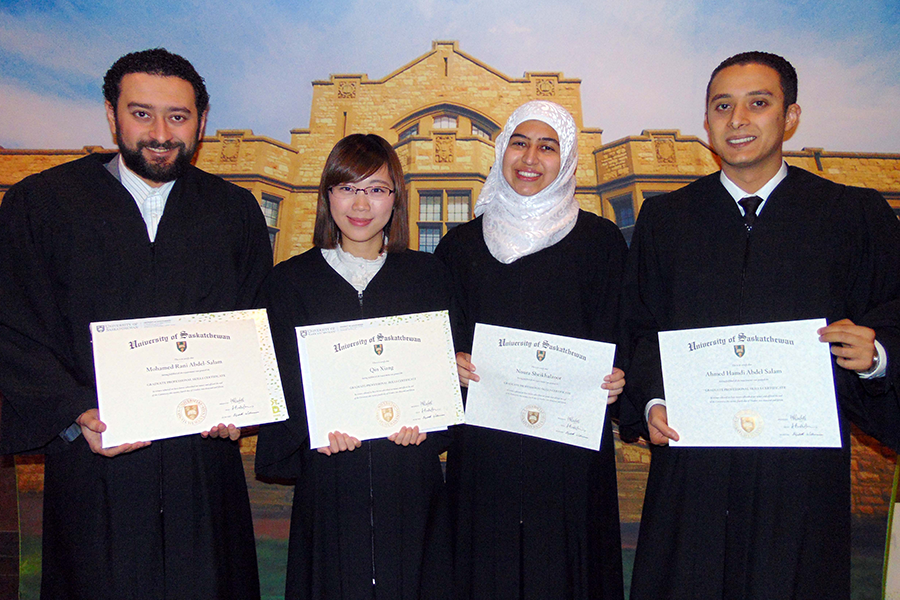"We started the Graduate Professional Skills certificate program as a way that could help develop non-academic skills for master- and PhD-level students," said Trever Crowe, associate dean, College of Graduate Studies and Research (CGSR). "The certificate focuses on nine competencies, from communications and negotiation, to project management and human resources."
The need for this type of training, Crowe explained, stems from a national stat that indicates that more than 80 per cent of PhD graduates in Canada will not get faculty appointments.
"They will need skills different than, and in addition to, their academic training," he explained. "This is really intended to make sure they are employable by industry or government. We are also trying to instill an entrepreneurial sprit so they could even start a business."
Working with the Gwenna Moss Centre for Teaching Effectiveness, CGSR officially launched the free non-credit program open to all grad students at the U of S in 2014, Crowe explained. The curriculum is standard for the first and last courses—plus an ethics course that is required for all graduate studies—with the students selecting electives for the middle section.
"It is a bookend structure. The first course is on critical thinking and the last course is about reflecting on everything they learned in the program. The middle is 20 hours of electives the student chooses," Crowe explained.
Choosing from topics in communications, teamwork, teaching, research, leadership and entrepreneurship leaves students with options that benefit both academic and career goals, said Noura Sheikhalzoor, a Master of Science candidate in nutrition who completed the certificate program this past October.
"There are many professional areas in which the program has impacted me," said Sheikhalzoor, adding that the program focuses on developing skills through strengths as opposed to weaknesses. "I was able to identify my strengths, discuss them with my colleagues, and establish learning goals and a mission statement based on them."
Sheikhalzoor explained that the program helped her with reflective thinking and reflective writing—something that has helped her connect what she learned in the program with her goals and objectives, and her academic and career experiences.
"The skills that the certificate focuses on are hot requirements in the job market," she said. "Through the certificate, I improved my leadership, teaching, creative and critical thinking, and communication skills. Being aware, reflective and able to connect my previous and current experiences with the future made me feel prepared for my career."
Crowe said the only issue he sees right now is about capacity. "With more than 3,000 graduate students, and expectations to increase that number, we may not have the capacity or resources to accommodate all students who wish to complete the certificate."
Right now, Crowe said, the program's capacity is about 30 students per term. "We have a good program that is full because students are interested. That's a good problem to have."

Life after grad studies
More than ever, graduate students will not find themselves in faculty positions once done pursuing education and will need to develop certain professional skills required outside of academia.